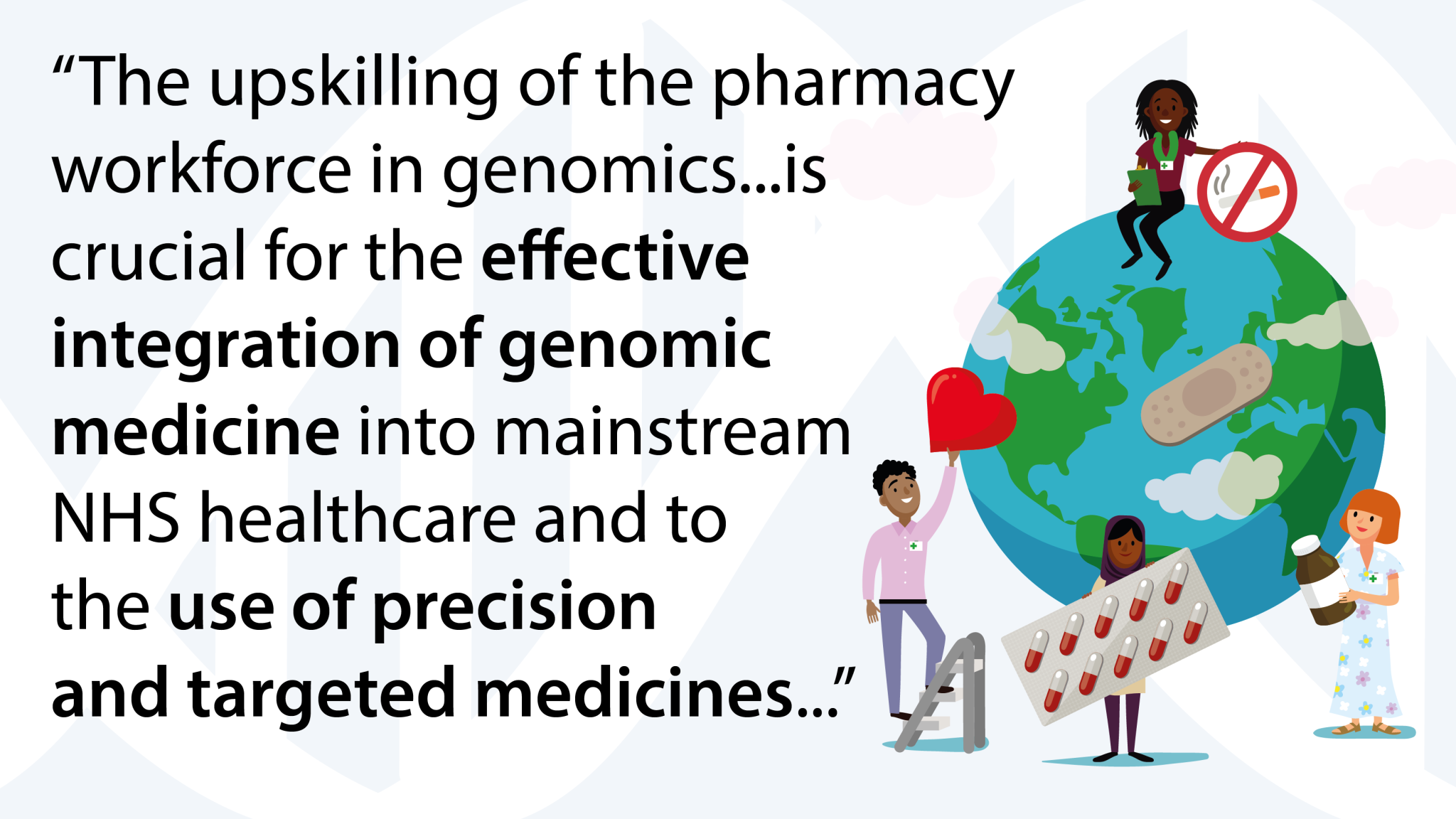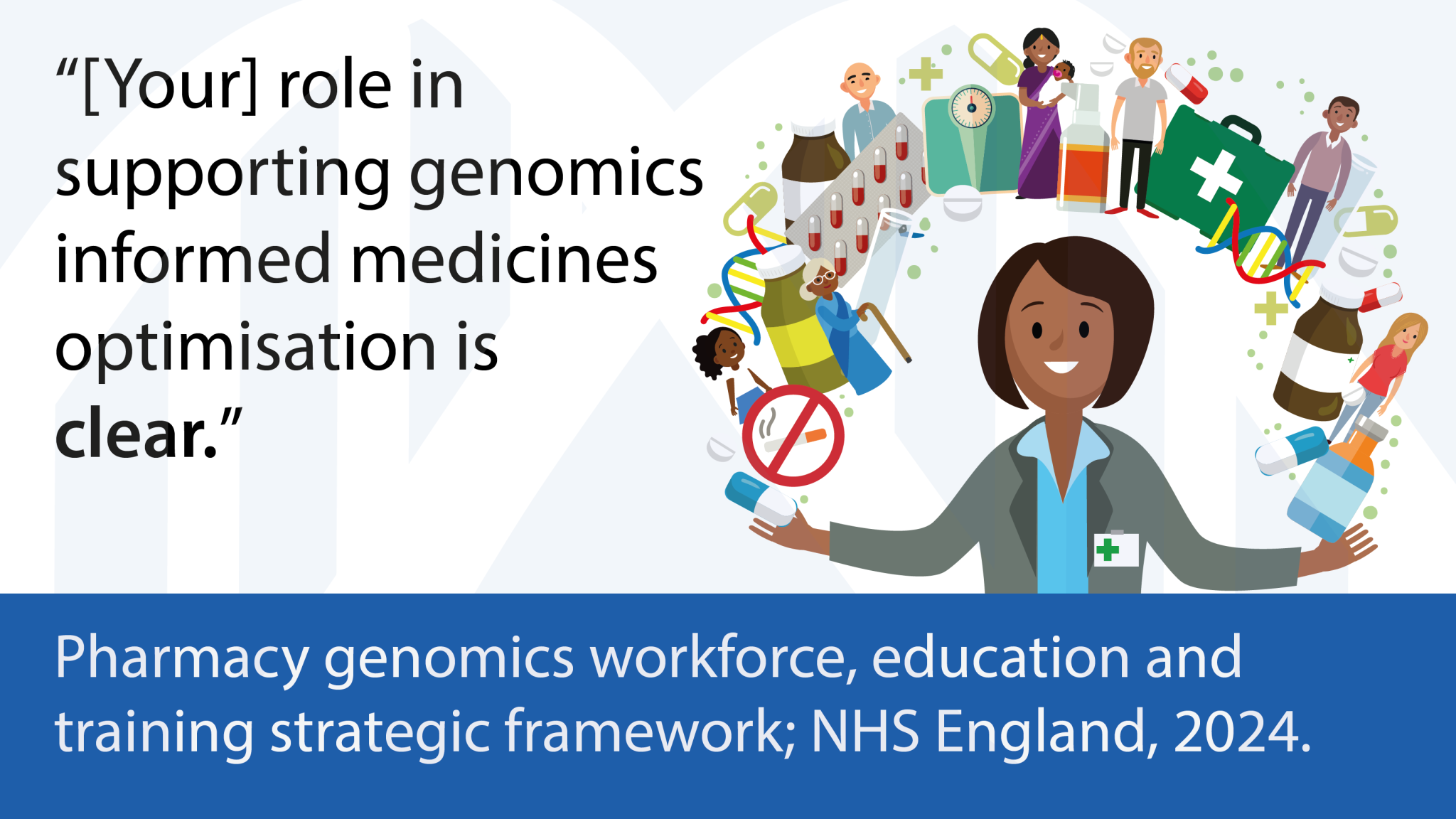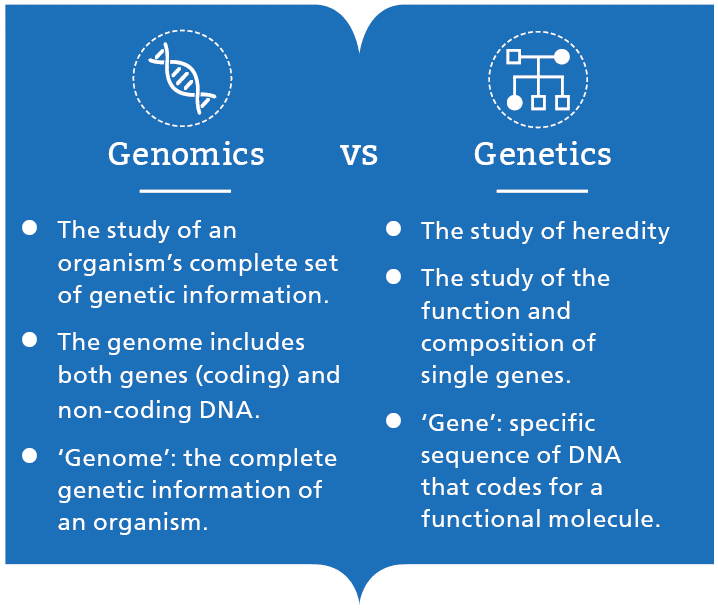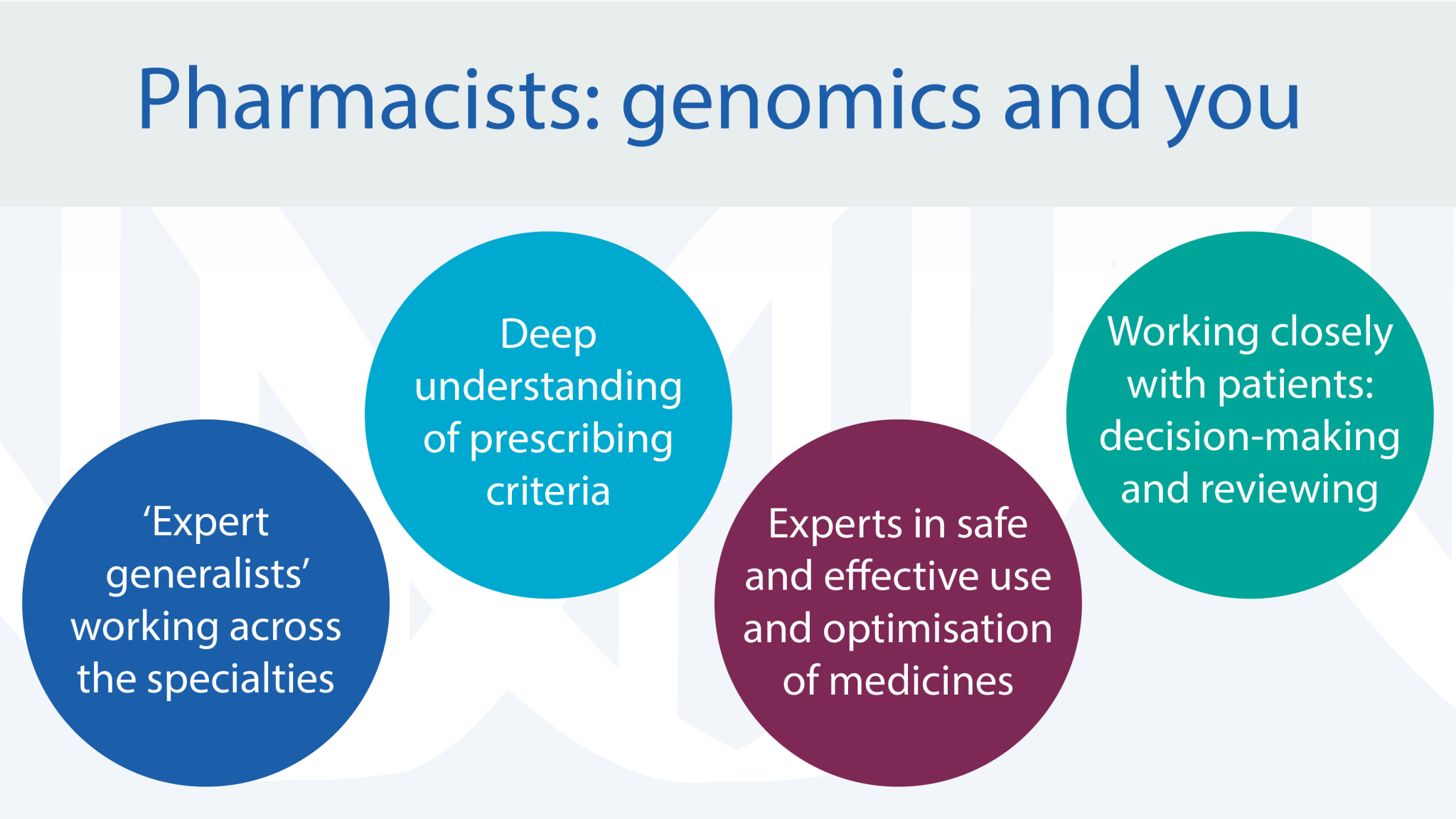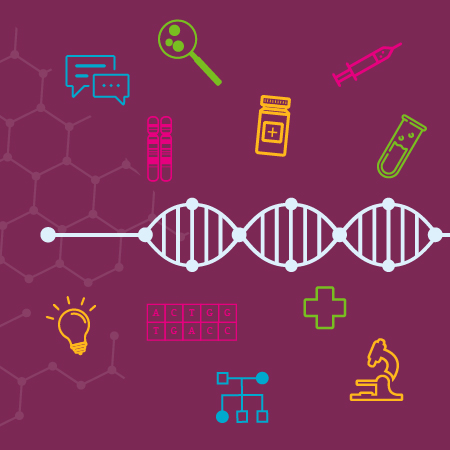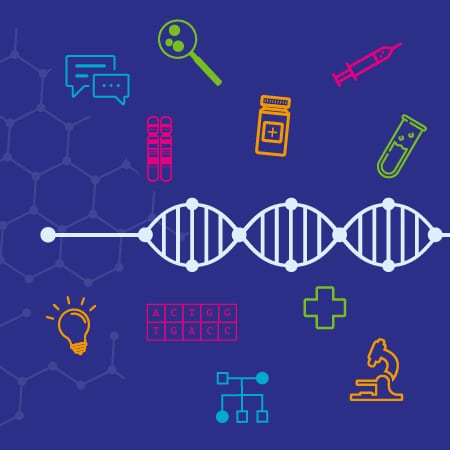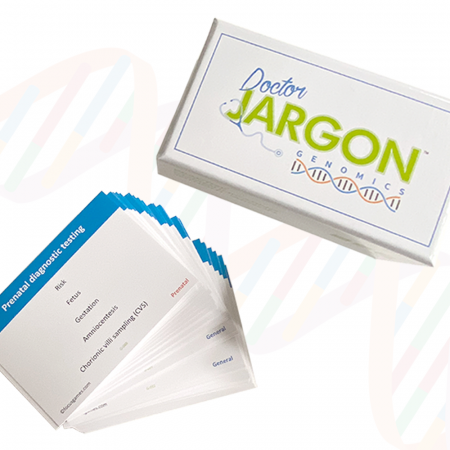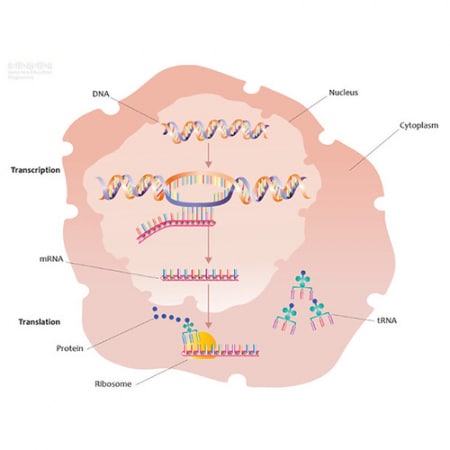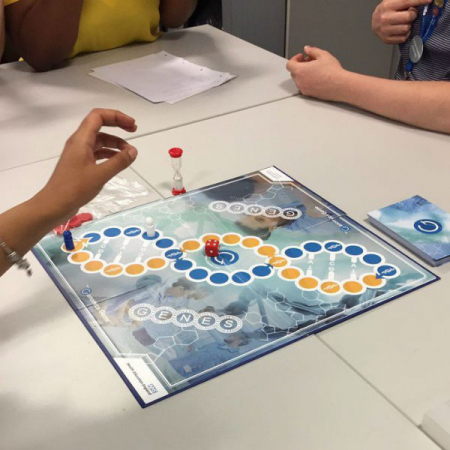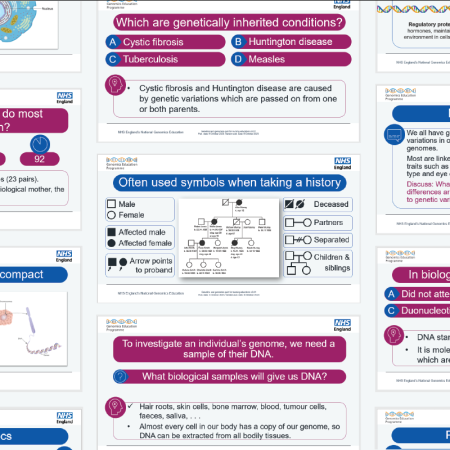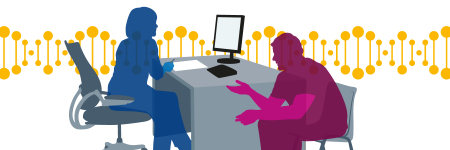Introduction
Genomics is here and increasingly a part of mainstream healthcare in the UK, and pharmacy is evolving with it, becoming more involved and pivotal in the delivery of genomics-informed care. Whether you’re a trainee, an early career practitioner, a consultant or an educator, all roles within pharmacy practice can help to leverage genomics’ power and potential to make a difference to patients.
On this page, you can find educational resources and useful information, as well as links out to policy, guidelines and further learning to help you build your knowledge and get started on – or continue – your genomics journey.
Click through the images to learn about why your role matters, as laid out in NHS England’s pharmacy genomics workforce, education and training strategic framework. When you’re ready, keep reading below as we tackle some common questions you might have.
Note: This webpage was developed in collaboration with Aris Saoulidis, Ojali Yusuff, Emma Groves and members of NHS England’s Pharmacy Workforce Group for Genomics. It is currently subject to ongoing review and regular updates; those wishing to provide feedback can do via this short form.
What do I need to know?
Genomics can be complex, yet some of the most important things you need to know are simple to learn. Click on the different questions to learn more about genomics, and where you come in.
What is genomics?
Although you may be familiar with ‘genetics’, especially in relation to certain tests, the concept of genomics is less well understood.
Genetics refers to the study of genes and their roles in inheritance, including in health and disease. It can refer to specific genetic disorders such as cystic fibrosis or Huntington disease.
Genomics, however, describes how we sequence, analyse, interpret and act on information from the whole genome, or any part of it. Genomics involves the study of complex diseases and the interplay of genes in health and disease, and often considers the environmental factors influencing individual genes. The National Genomic Test Directory refers to all tests as ‘genomic’ and we will do the same throughout this resource.
Take a look at our handy infographic below to learn more about the differences between the two terms.
Why me?
Pharmacists and pharmacy technicians are in a unique position within the NHS to make a big impact. As experts in the safe and effective use of medicine, you are best placed to learn about and understand the many factors, including genomics, that influence an individual’s response to drugs and apply this to better patient care.
Look at the graphic for some of the qualities that you embody to help provide genomic care.
By using your qualities and skills as a pharmacist and learning about genomics, you can make all the difference: from making better prescribing decisions to communicating more effectively with patients.
Why now?
Genomics is formally supported by the NHS Long Term Workforce Plan and will continue to develop rapidly in the coming years, as more genomic tests become available to more people across the country. Genomics is also now more embedded in the public consciousness than before, and this will naturally lead to more questions and a greater burden on pharmacists – and all healthcare professionals – to help provide the answers.
As outlined in NHS England’s pharmacy genomics workforce, education and training strategic framework, pharmacy professionals will “require additional expertise and role-specific competencies for guiding dosing and selection of medicines based on genomic sequencing information […] particularly as evidence on genomics informed medicines optimisation expands and informs future implementation across more areas of the NHS”. This was reinforced by a 2022 survey of over 1,500 pharmacists which found that while only 8% of pharmacists felt prepared to use genomic testing in their practice, over 70% could envisage ordering, advising on or counselling patients on genomic testing in the future after appropriate training.
The future is now
Although genomics is often talked about as ‘the future’, pharmacy professionals are already supporting the mainstreaming of genomic medicine across the NHS.
Some examples include:
- education and shared decision-making with patients around precision medicine;
- identifying toxicity-related variants in the dihydropyrimidine dehydrogenase (DPYD) gene prior to starting fluoropyrimidine chemotherapy;
- collaborative care for people with monogenic diabetes;
- familial hypercholesterolemia genomic testing as part of lipid optimisation;
- genomics in antimicrobial stewardship and infectious disease; and
- pharmacy-led research and the implementation of pharmacogenomics.
You can learn more about these projects in appendix 1 of the strategic framework.
I want to learn more; what resources are available?
There are many resources available to help you better understand and apply genomics in your practice, including this webpage: Here are some to get you started.
- ‘Pharmacy’s guide to genomic medicine‘ is a short article, written by East Genomics clinical pharmacy lead Aris Saoulidis, that provides a guide to networking opportunities, education and training initiatives, clinical resources and more.
- Genomics 101: From Genes to Genome is a 30-minute course in the Genomics 101 series that explores genes, genomes and their relation to health. It is a sound starting point for those wanting to go back to basics.
- ‘Introduction to genomics in pharmacy‘, by the Centre for Pharmacy Postgraduate Education (CPPE), is a two-hour e-learning programme that introduces pharmacists to genomics and pharmacogenomics; the CPPE genomics gateway signposts pharmacy professionals to genomics resources.
- GeNotes Pharmacogenomics contains a selection of articles that provide information to help healthcare professionals make the right decisions at each stage of a clinical pathway. New articles are being added all the time, so consider bookmarking the page for reference now and in the future.
- The 2022 Personalised Prescribing report, from the British Pharmacological Society and the Royal College of Physicians, explains how and why pharmacogenomics can be used to improve patient outcomes in the NHS.
- The Royal Pharmaceutical Society’s pharmacogenomics webpage, supported by the associated expert advisory group, offers resources and position statements for all pharmacy professionals, championing pharmacy’s role in genomic medicine, as well as relevant webinars to members.
Learners from the devolved nations interested in finding out more about genomic testing in their respective services can visit the GeNotes article: Genomic testing in the devolved nations.
A more comprehensive list of resources is available in the Link Bank at the bottom of this webpage.
The impact of genomics on families
Having information about a person’s genome can make all the difference. It can allow you to prescribe certain drugs that might be more effective and minimise long and frustrating journeys caused by less effective treatment options.
For Isobel, genomic testing illuminated a way forward that otherwise would not have come to light. Watch this film to learn more about her experience.



